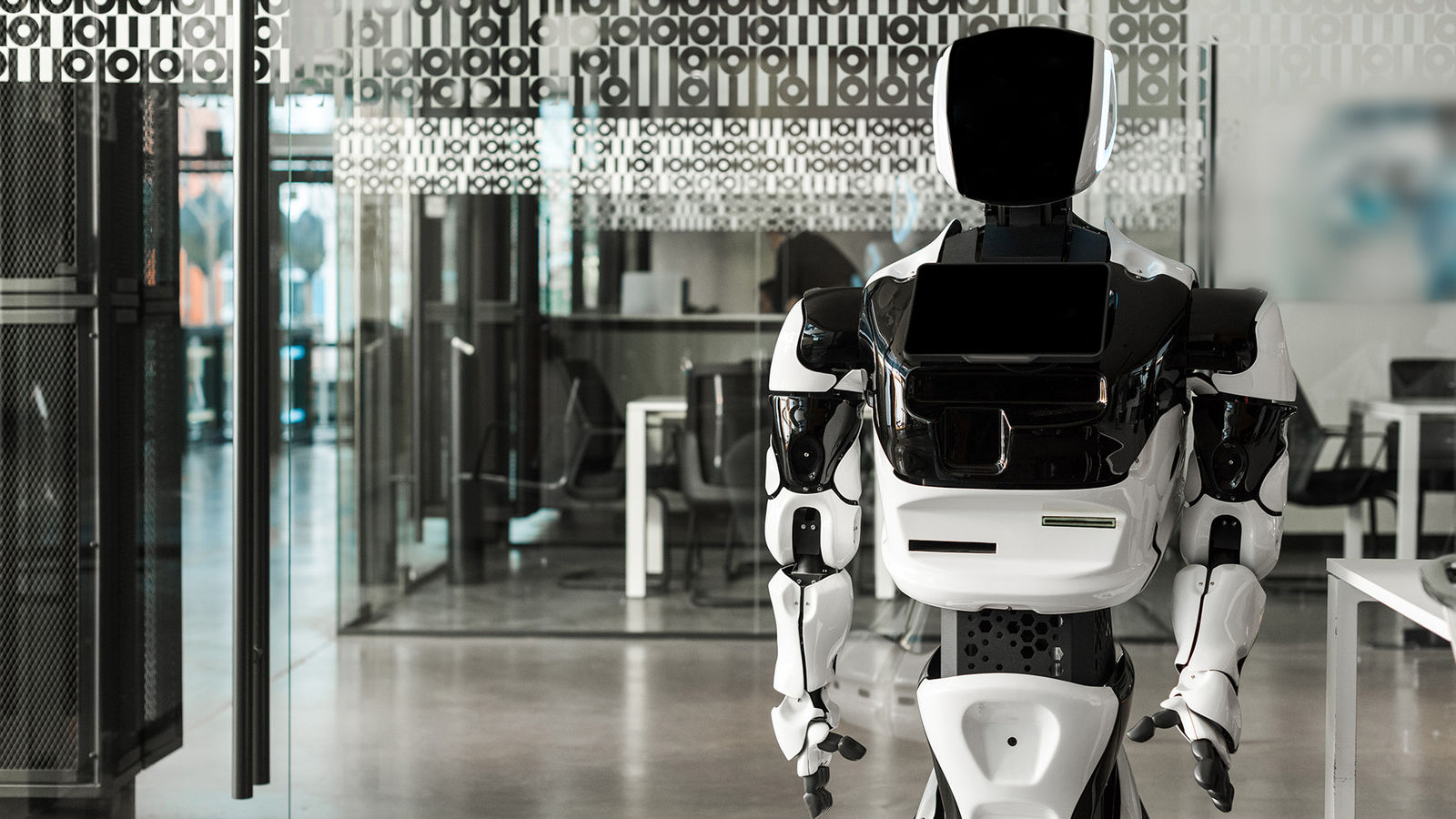Cross Roller Bearings: Located in the rotary actuators of humanoid robots and industrial arms, these bearings support axial loads from both directions, radial loads, tilting moment loads, and any combinations of loads. They boast high load capacity, high stiffness, precision, compact design, long lifespan, and low maintenance requirements.
Spherical Plain Bearings: Suitable for applications requiring three-dimensional motion, these bearings accommodate self-lubrication, high misalignment angles and offer near zero torque and clearance, with high precision.
Rod End & SPB Assemblies: Used in the joints of humanoid robots, particularly in linear actuator ends, rod ends allow for rotational freedom about all axes while maintaining a fixed point of contact. They are compact, optionally maintenance free, easy to mount, and can accommodate high misalignment angles, enhancing the robot’s efficiency and durability.
RNN & Cage Needle Bearings: These bearings are utilized in planetary rotary actuators and wheel side reduction gears. They transmit torque and support radial loads while maintaining a compact design, reducing friction in robot arms and improving rigidity.
What role do the bearings play in these applications? Why is a customizable approach to bearing design critical for these robotic applications?
Bearings are fundamental components in robotics, serving as the interface between moving parts. They transfer loads and facilitate smooth and controlled motion, allowing for precision in robotic applications. A customizable approach to bearing design is critical because each robotic application has unique requirements regarding load, speed, precision, and environmental conditions. Custom bearings can be tailored to meet these specific demands, ensuring optimal performance and longevity.
What are the benefits of samples?
Manufacturing short, application-specific runs, which we refer to as samples, allows for greater flexibility and customization. Samples enable rapid iteration and improvement of designs, which is essential in the fast-paced field of robotics where technology and requirements can quickly evolve.
Elaborate on the role that torque and clearance play in these applications as well as other areas where precision and reliability are critical to success.
Torque and clearance directly affect energy consumption and motion accuracy of robots. Torque or friction, the force needed to cause rotation, must be minimized to ensure efficient operation and reduce energy consumption. Clearance, the space between moving parts, must be carefully controlled to prevent excessive play, which can lead to imprecision, excessive wear and noise.
How does backlash fit into product design and the impact it has on humanoid movement?
Backlash, the looseness or play between parts, can significantly impact the accuracy and smoothness of humanoid movement. Minimizing backlash is essential to maintain precise control over the robot’s movements, which is particularly important for tasks requiring high levels of dexterity and coordination.
What role do lubrication and seals play in robotic applications?
Lubrication and seals are crucial for the longevity and reliability of bearings in robotics. Lubrication reduces friction and wear, while seals protect against contaminants that can degrade the bearing’s performance. Together, they ensure that the bearings operate smoothly and require less maintenance over time.
What challenges are manufacturers facing in the humanoid and industrial robot market segment and how can CCTY help solve many of these challenges?
In the humanoid and industrial robot market, manufacturers encounter many challenges, including the demand for precise motion control, increasing energy efficiency, and longevity. The bearings must meet stringent specifications, like near zero friction, minimal clearance, high accuracy, and long lifespan. CCTY is as much an engineering company as it is a manufacturer and is well equipped to tackle these issues. CCTY engineers work closely with customers, aiding in the design process to ensure optimal performance. Through specialized bearing design and sophisticated manufacturing processes, the company manufactures tailored solutions and conducts comprehensive on-site testing, ensuring that each bearing is perfectly suited to the unique demands of its application. This approach not only addresses the immediate challenges but also contributes to the longevity and reliability of robots.
How does CCTY’s experience in bearing design help the organization develop full assemblies requested by the customer? What are the benefits of these full assembly solutions?






